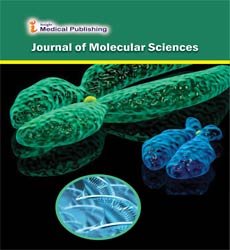Rhinovirus-induced airway remodeling is modulated by curcumin and is NFB dependent
Abstract
The aim of the present study was to evaluate the effect of curcumin on expression of the genes involved in the remodeling process in the context Rhinovirus infection. To achieve this, two lines of fibroblasts (WI-38 and HFL1) were treated with rhinovirus 2 and 16 and curcumin, and expression of the genes involved in remodeling process (MMP-9, TGF-β, CHI3L and ADAM33) was evaluated by qPCR and Western Blot. Moreover, NF –κB were silenced utilizing siRNABoth rhinoviruses induced expression of the genes evaluated: HRV16 caused stronger effect than HRV2, respectively: RQ for MMP-9=13 vs.12, TGF-β=7.6 vs. 7.2, CHI3L=3.4 vs. 3.2, ADAM33=4.8 vs. 4.6 (p<0.05). Curcumin significantly decreased MMP-9 and TGF-β expression (RQ=0.55 and 0.6 respectively, p<0.05). Importantly, curcumin significantly decreased Rhinovirus-induced expression of MMP-9 and TGF-β (RQ=8 for both HRV16 and HRV2, and RQ=5.3 for HRV16 and 5.1 for HRV2, respectively, p<0.05). NF–κB siRNA revealed plays important role in remodeling-associated genes and curcumin action – the expression of each gene was lower when NF –κB was silenced (p<0.05). The results on mRNA levels were confirmed on protein level for each gene investigated.
Curcumin influence airway remodeling by changing the expression of the genes involved in this process. HRV infections upregulate a number of airway inflammatory and remodeling mediators that are implicated in the pathogenesis of airway inflammation and remodeling in asthma. These processes are dependent on Nf –κB. Our results show that remodeling is a mechanism which might be influenced/inhibited by some agents, and this subject demands further study.
Open Access Journals
- Aquaculture & Veterinary Science
- Chemistry & Chemical Sciences
- Clinical Sciences
- Engineering
- General Science
- Genetics & Molecular Biology
- Health Care & Nursing
- Immunology & Microbiology
- Materials Science
- Mathematics & Physics
- Medical Sciences
- Neurology & Psychiatry
- Oncology & Cancer Science
- Pharmaceutical Sciences
